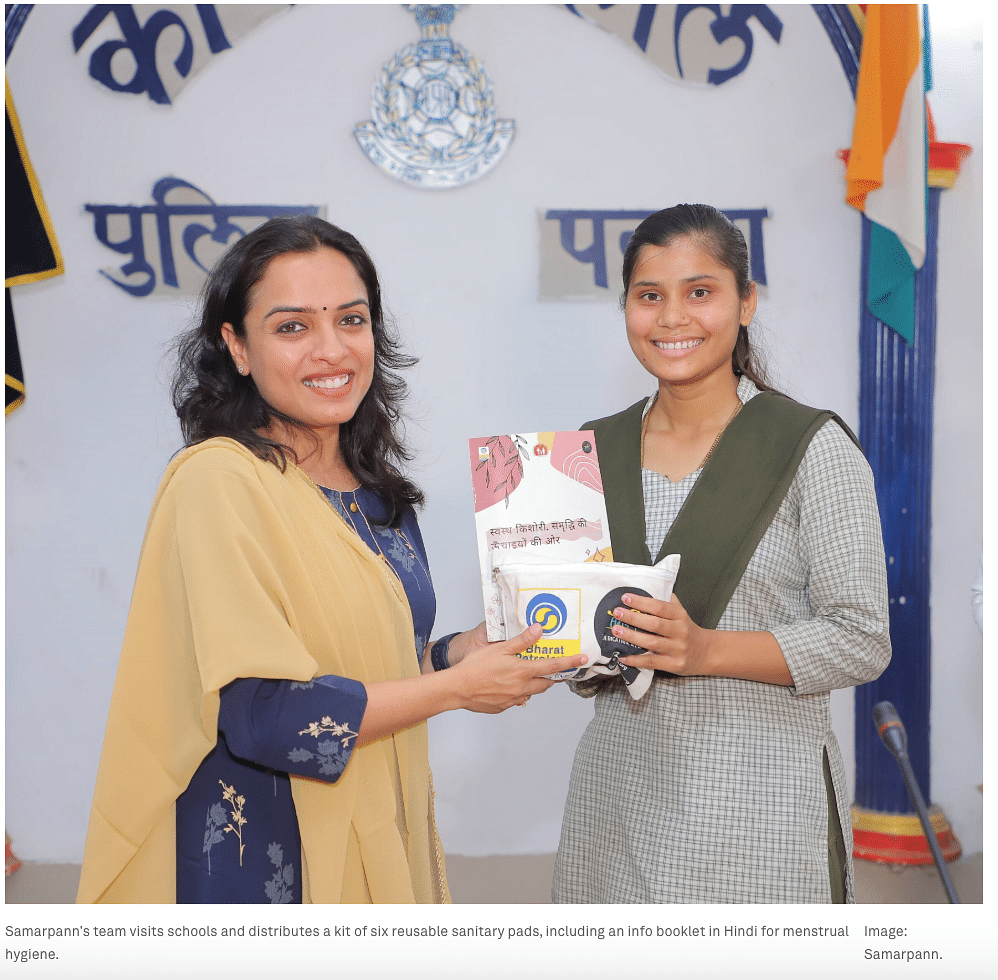In the heart of rural India, a quiet revolution is unfolding – one that promises to transform the lives of millions of young girls. It’s a revolution against shame, silence, and the age-old taboos that have long surrounded a natural biological process: menstruation.
Imagine being a 12-year-old girl in a remote village, suddenly confronted with your first period. Confused, scared, and utterly unprepared, you’re met not with support but with silence. Sadly, this is not a hypothetical scenario but the harsh reality for over 70% of girls in rural India, who are unaware of menstruation before they experience it. The consequences of this lack of education are devastating.
The hidden crisis of menstrual hygiene
Menstruation, though natural, is still cloaked in silence and shame across much of rural India. Around 64% of menstruating women in India use sanitary napkins, while the remaining 34% rely on unsanitary alternatives like old cloth, ash, or even hay. These unhygienic practices rob girls of their dignity and expose them to significant health risks, including infections and long-term reproductive health issues.
The financial burden of conventional sanitary products further exacerbates this, especially for families living on daily wages, where sanitary napkins are seen as a luxury. Girls unable to afford proper menstrual products are left vulnerable to infections and discomfort.
A problem that goes beyond health
This isn’t just a health crisis – it ripples into education, economic independence, and gender equality. Around 23 million girls drop out of school each year due to inadequate menstrual hygiene management, with many missing school during their periods due to the lack of proper facilities or the fear of leakage and embarrassment. The long-term result is a diminished opportunity for economic independence, perpetuating the cycle of poverty and gender inequality.
Sustainable sanitary pads offer a solution
Amidst these challenges, an innovative, sustainable solution has emerged: reusable cloth-based sanitary pads. Unlike disposable pads, which contribute to environmental waste and financial strain, reusable alternatives are affordable, durable, and eco-friendly. Lasting up to 3-5 years, these pads dramatically reduce the financial burden on families, making menstrual hygiene accessible to even the most marginalized communities.
These pads have been tested against pathogens like E. coli, Staphylococcus aureus, and Candida albicans, ensuring safe usage. Beyond the health benefits, each reusable pad prevents 72-90 disposable pads from ending up in landfills annually. Considering that plastic-based pads take 500 years to decompose, the environmental impact is significant.
How CSR partnerships can drive change
Organizations like Samarpann, in collaboration with corporate partners, are leading the charge in addressing menstrual hygiene challenges through impactful initiatives. These partnerships act as a crucial bridge between need and access, ensuring that menstrual hygiene products reach those who need them most.
Case study: Panna, Madhya Pradesh
In Panna’s villages, Samarpann has distributed reusable sanitary pads to over 5,000 girls, providing a sustainable solution to the twin challenges of affordability and accessibility. Each girl receives a pack of six cloth-based reusable sanitary pads.
Benefits of these pads:
- Health: Reduces irritation and rashes common with plastic pads; lowers the risk of cervical cancer.
- Environment: Each girl prevents 72-90 disposable pads from entering landfills annually.
- Affordability: Lasts up to five years, providing long-term savings for families who might otherwise spend ₹70-100 per month on disposable pads.
Changing minds and breaking taboos
But products alone are not enough. The real challenge lies in dismantling centuries-old cultural taboos surrounding menstruation. Samarpann’s work goes beyond distribution; they focus on education and awareness-building. Their teams visit schools, community centres, and homes to start conversations, aiming to normalize menstruation and empower girls to manage it confidently. Along with a pack of six resuable sanitary pads, Samarpann is also giving information booklet to each girl in their vernacular language which has complete information on menstruation in very simple language.
Involving boys and men in these conversations is critical. By educating them, Samarpann is breaking the silence around menstruation, ensuring that women and girls are supported rather than shamed. The NGO has also introduced period underwear to rural India – a pioneering solution that’s gaining traction in menstrual hygiene management.
Power of collaborations and scaling impact
Corporate Social Responsibility (CSR) initiatives like these demonstrate the power of collaboration in tackling systemic issues. By combining corporate resources with grassroots knowledge, these partnerships ensure that menstrual hygiene management isn’t just about distributing products, but about changing minds and systems.
This holistic approach creates a supportive ecosystem that addresses menstrual health challenges from all angles – education, accessibility, affordability, and stigma. As a result, thousands of girls are empowered to manage their periods with dignity, stay in school, and pursue their dreams.
While progress is being made, there is still much work to be done. Millions of girls across rural India continue to lack access to basic menstrual hygiene products and education. Scaling initiatives like Samarpann’s requires continued investment from corporations, support from governments, and a societal commitment to breaking down the taboos that hold girls back.
These partnerships between NGOs and Corporates show what’s possible when corporate power aligns with grassroots dedication. We need more collaborations, more investments, and more voices joining this vital conversation.
The next time you see a young girl confidently walking to school, remember: she might be carrying more than just books in her bag. She might be carrying the promise of a future where no natural process can hold her back. And that is a future worth fighting for.
Ruma Bhargawa is the Lead, Mental Health at World Economic Forum. Megha Bhargava is Additional Commissioner Income Tax, Ministry of Finance, Government of India
This article is republished from WEF under a Creative Commons license. Read the original article.
